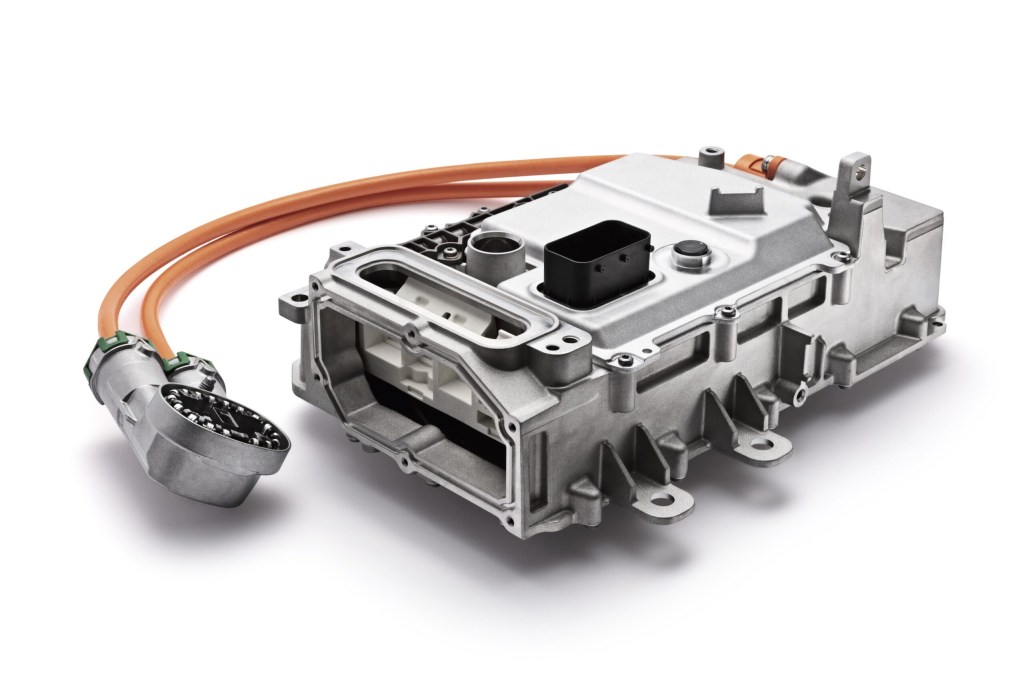Revolutionize Your Ride With Cutting-edge Electric Vehicle Inverter Technology!
Exploring the Exciting World of Electric Vehicle Inverter Technology
Electric vehicles (EVs) have gained significant popularity in recent years due to their eco-friendly nature and the promise of a sustainable future. One crucial component that powers the smooth operation of these vehicles is the electric vehicle inverter technology. In this article, we will dive deep into the world of EV inverters, exploring their functions, benefits, and everything you need to know about this fascinating technology.
What is Electric Vehicle Inverter Technology?
The electric vehicle inverter technology is a vital part of the electric drivetrain system. It converts the direct current (DC) output from the vehicle’s battery pack into alternating current (AC), which is then used to power the electric motor. Essentially, the inverter acts as the bridge between the battery and the motor, ensuring efficient and reliable power delivery.
2 Picture Gallery: Revolutionize Your Ride With Cutting-edge Electric Vehicle Inverter Technology!


Who Uses Electric Vehicle Inverter Technology?
Electric vehicle inverter technology is primarily used by automotive manufacturers in their electric vehicle models. As the demand for EVs continues to increase, major players in the automotive industry, such as Tesla, Nissan, and BMW, are investing heavily in the development of advanced inverter systems. Additionally, companies specializing in EV conversions and aftermarket modifications also utilize this technology to enhance their electric vehicle offerings.
When and Where Was Electric Vehicle Inverter Technology Developed?

Image Source: conti-engineering.com
The development of electric vehicle inverter technology can be traced back to the early 20th century. However, it was only in recent years that significant advancements were made due to the growing demand for EVs. Countries like Japan, the United States, and Germany have been at the forefront of inverter technology development, with several research institutions and companies collaborating to create more efficient and powerful inverters.
Why is Electric Vehicle Inverter Technology Important?
Electric vehicle inverter technology plays a crucial role in ensuring the smooth and efficient operation of electric vehicles. Some key reasons why this technology is important include:
Power Conversion: Inverters convert the DC power from the battery into AC power, allowing it to be used by the electric motor.
Efficiency: High-quality inverters can maximize energy conversion efficiency, resulting in longer driving ranges and reduced energy consumption.
Performance: Advanced inverters enhance the overall performance of the electric motor, providing better acceleration and smoother operation.
Reliability: Inverters are designed to withstand the demanding conditions of electric vehicle operation, ensuring reliable power delivery.

Image Source: marelli.com
How Does Electric Vehicle Inverter Technology Work?
Electric vehicle inverter technology works by utilizing power electronic devices, such as insulated gate bipolar transistors (IGBTs) or silicon carbide (SiC) modules. When the vehicle’s battery supplies DC power, the inverter’s power electronics convert it into AC power, which is then delivered to the electric motor. The inverter also regulates the frequency and voltage of the AC power, allowing for precise control of the motor’s speed and torque.
Frequently Asked Questions (FAQ) about Electric Vehicle Inverter Technology
1. Can electric vehicle inverters be repaired? Yes, in most cases, inverters can be repaired by certified technicians. However, it is always recommended to consult the manufacturer or an authorized service center for assistance.
2. Do different EV models use the same type of inverter? Not necessarily. While some manufacturers may use similar inverter designs, each EV model may have specific requirements and variations in their inverter systems.
3. What is the lifespan of an electric vehicle inverter? The lifespan of an electric vehicle inverter can vary depending on factors such as usage, maintenance, and quality. Generally, inverters are designed to last for several years.
4. Can I upgrade the inverter in my electric vehicle? Upgrading the inverter in an electric vehicle can be a complex process. It is recommended to consult with a professional technician or the vehicle manufacturer before attempting any modifications.
Types and Sizes of Electric Vehicle Inverter Technology
Electric vehicle inverters come in various types and sizes to cater to different vehicle models and power requirements. Some common types include:
Central Inverter: Used in vehicles with a single electric motor, such as compact electric cars.
Dual Inverter: Utilized in vehicles with dual electric motors, providing enhanced performance and control.
Modular Inverter: Consists of multiple smaller inverters that can be combined to meet the power demands of larger vehicles or high-performance EVs.
The size of the inverter depends on factors such as the vehicle’s power output and available space. Inverters are typically compact and designed to fit within the vehicle’s drivetrain system without compromising other components.
Materials and Specifications of Electric Vehicle Inverters
Electric vehicle inverters are constructed using high-quality materials that can withstand the demands of the automotive environment. Some common materials used in inverter manufacturing include aluminum, copper, and silicon. These materials provide excellent thermal conductivity, electrical conductivity, and durability.
Specifications of electric vehicle inverters may vary depending on the manufacturer and model. Key specifications to consider when evaluating an inverter include power rating, efficiency, voltage range, and cooling mechanisms. Optimal specifications ensure efficient power conversion and reliable operation.
Tips and Tricks for Electric Vehicle Inverter Technology
Here are some useful tips and tricks to maximize the performance and longevity of your electric vehicle inverter:
Regular Maintenance: Follow the manufacturer’s recommended maintenance schedule to ensure optimal performance and prevent potential issues.
Keep the Inverter Cool: Maintain proper cooling of the inverter to prevent overheating, as excessive heat can degrade performance and shorten its lifespan.
Use Genuine Parts: When replacing any components of the inverter system, always use genuine parts recommended by the manufacturer for reliable operation.
Monitor Power Output: Keep an eye on the inverter’s power output and efficiency to detect any anomalies or potential failures.
Benefits and Disadvantages of Electric Vehicle Inverter Technology
Electric vehicle inverter technology offers several benefits, including:
Improved Efficiency: Inverters maximize energy conversion efficiency, resulting in extended driving ranges and reduced energy consumption.
Enhanced Performance: Advanced inverter systems improve the overall performance of electric motors, providing better acceleration and smoother operation.
Reduced Emissions: Electric vehicle inverters contribute to reducing greenhouse gas emissions, helping combat climate change.
However, there are a few disadvantages associated with electric vehicle inverter technology as well:
Cost: Advanced inverter systems can be expensive, adding to the overall cost of electric vehicles.
Complexity: Inverter technology involves complex electronics and control systems, which may require specialized knowledge for maintenance and repairs.
Reliance on Battery: Inverters heavily rely on the electric vehicle’s battery performance, and any issues with the battery can affect the inverter’s operation.
Conclusion: Embracing the Future of Electric Vehicle Inverter Technology
Electric vehicle inverter technology has undoubtedly revolutionized the electric vehicle industry, enabling efficient and sustainable transportation solutions. As EVs continue to evolve, advancements in inverter technology will play a crucial role in improving performance, efficiency, and overall driving experience. Whether you’re an EV enthusiast or simply curious about the future of automotive technology, exploring the world of electric vehicle inverter technology is a fascinating journey worth embarking on.
This post topic: Electric Car Technology


